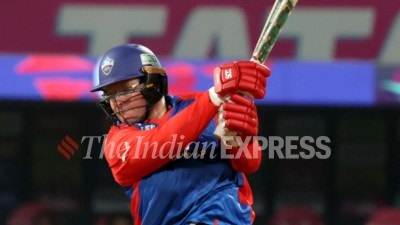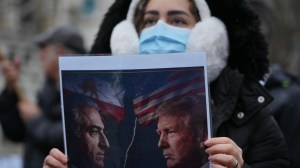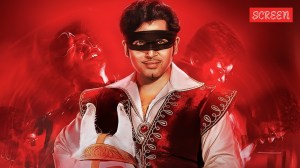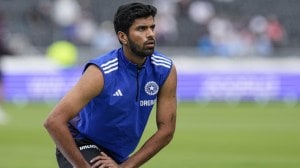The Spy We Loved
IN the mirth and naivete of youth, many afternoons are spent debating the relative merits and demerits of the movie stars who8217;ve played...

IN the mirth and naivete of youth, many afternoons are spent debating the relative merits and demerits of the movie stars who8217;ve played James Bond. For some, there will never quite be a 007 like Sean Connery. For a more contemporary generation8212;breast-fed, if that be the appropriate expression, on American TV re-runs8212;Pierce Brosnan is Her Majesty8217;s Once and Forever Secret Agent.
For the toffee-nosed set8212;blessedly, in a minority8212;Roger Moore is numero uno at Number 7. As for George Lazenby and Timothy Dalton, even the few who8217;ve seen their films have no memory of them. The most damning opinion, then, is the non-opinion.
As one grows older, and learns to cherish the few things in life that lend themselves to absolute pleasure, the whole debate appears rather silly. There8217;s no point going into the 8216;8216;Connery versus Moore versus Brosnan8217;8217; rigmarole. Bond is Bond: greater than the sum of his parts. If you like him, you like all his films. You don8217;t ask a disciple of Vishnu to choose among 10 incarnations.
This is a celebration of unadulterated adulation. It begins with the story of Ian Fleming, his wartime adventures and his Caribbean retreat, his liaisons romantic, dangerous or both, his life and career, and how it all found place, in some Hitchcock-like cameo, in his iconic character8217;s CV.
The Bond buff is taken on an arresting journey into 007 trivia. You find out, for instance, that Monique Delacroix8212;Bond8217;s Swiss mother, killed, like his father, in a climbing accident when James was a boy8212;was inspired by Monique Panchaud de Bottomes, a Swiss girlfriend Fleming got engaged to but broke off from, after his mother threatened to disinherit him. He preferred the money, a cold, pragmatic decision 007 would have approved of.
|
Like so many upper class Englishmen in the dazzling afternoon of Empire, Fleming was a polymath, a man of rare and diverse talents 8212;and by today8217;s aseptic, humourless standards, deliciously politically correct |
The most rivetting chapter in the book is probably the one simply titled 8216;8216;Villains8217;8217;. Fleming felt, the book says, that 8216;8216;heroes are judged by the calibre of their adversaries8217;8217;.
Like just so many upper class Englishmen in the dazzling afternoon of Empire, Fleming was a polymath, a man of rare and diverse talents and opinions8212;and, by today8217;s aseptic, humourless standards, deliciously politically incorrect. His 8216;8216;uber-villains8217;8217; were a cross between, well, Rupert Murdoch and Osama bin Laden: 8216;8216;megalomaniacs whose schemes of nothing less than world domination make them worthy opponents for Bond. They are all extraordinary: Mr Big is 8216;probably the most powerful negro criminal in the world8217;, Dr No 8216;one of the most remarkable men in the world8217;, Goldfinger 8216;the richest man in England8217;, who is planning 8216;one of the biggest conspiracies of all time8217; in order to become the 8216;richest man in the world8217;. Ernst Stavro Blofeld is already the 8216;biggest crook in the world8217;, whose devious plans are 8216;on a scale of a Caligula, of a Nero, of a Hitler, of any of the great enemies of mankind8217;.8217;8217;
Blofeld, incidentally, was named for Tom Blofeld, 8216;8216;a Norfolk farmer, chairman of the Country Gentleman8217;s Association, and8230; a contemporary of Fleming8217;s at Eton.8217;8217; He was also the father of cricket8217;s Henry Blofeld.
From his women8212;find out how Honeychille Rider Dr No or Pussy Galore Goldfinger got their names8212;to his drink, his guns to his gadgets, this book is the Bond bible. It can be summed up best by the line it quotes from the Spectator8217;s review of Moonraker: 8216;8216;It8217;s all utterly disgraceful and highly enjoyable.8217;8217; Go grab it.
- 01
- 02
- 03
- 04
- 05































